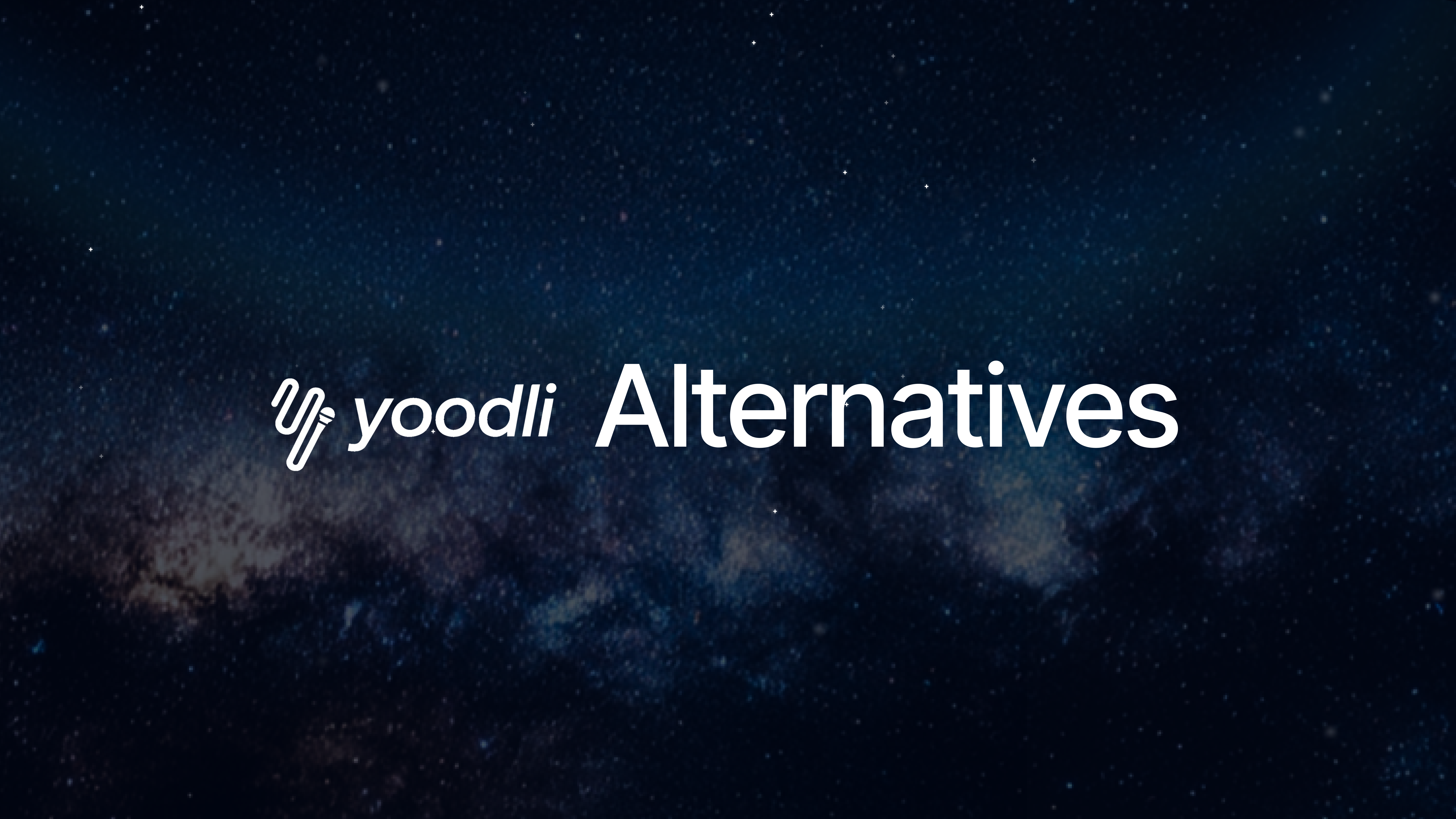
TL;DR
- Yoodli is great for broad communication coaching with strong logos and fast bots.
- It falls short for sales teams: limited reporting, not as deeply customizable GTM roleplays, no real call scoring.
- Hyperbound is purpose-built for revenue teams with customizable GTM roleplays, real call scoring, and deeper custom analytics and reporting.
- Chosen by enterprises for its ability to handle complex, technical sales conversations at scale.
What Is Yoodli?
Yoodli launched in June 2023 and began as a public speaking coaching tool. Over time, they’ve expanded into a wide range of human-to-human conversations: HR, leadership coaching, interview prep, GTM enablement, even doctor-patient coaching.
The company positions itself as intentionally horizontal, targeting both mid-market and enterprise organizations while maintaining a free B2C version. They recently raised a $13M Series A led by Madrona (the same investor behind Highspot).
Yoodli’s mission is rooted in empathy; the founders often highlight their personal communication challenges and vision of bringing coaching to underserved communities worldwide.
Strengths of Yoodli
One of Yoodli’s biggest strengths is its founding team. CEO Varun Puri, who once reported directly to Sergey Brin at Google Special Projects, brings technical credibility and a global SaaS network. CCO Esha Joshi adds experience in software engineering, public speaking, and venture capital, giving the company both technical depth and business savvy. Together, they’ve leaned heavily on their personal brands and networks to build early traction.
On the product side, Yoodli emphasizes accessibility and soft-skill development:
- Fast bot latency that makes roleplays feel natural.
- Simple bot creation (3–5 minutes).
- Multi-party roleplays and SCORM integrations for LMS.
- A free B2C version that lowers the barrier to entry.
- Coaching on filler words, eye contact, pacing, and overall confidence.
This combination of leadership credibility, scrappy go-to-market, and approachable product design has positioned Yoodli as a well-regarded name in the AI roleplay space.
Where Yoodli Falls Short for Sales Teams
Yoodli works well for general communication practice, but when it comes to enterprise sales enablement, certain gaps become clear.
First, reporting and analytics are limited. The dashboards are pre-set, which restricts managers from creating the custom views they need to track skills across a team. Second, while roleplays start off strong, they often plateau after a couple of minutes, falling short of simulating complex, multi-layered sales cycles.
Their AI scorecards create quick wins with auto-generated feedback but lack depth in evaluating technical or product acumen. And because Yoodli doesn’t integrate with dialers or call recorders, practice sessions remain disconnected from actual sales performance.
To sum up, Yoodli is effective for broad coaching use cases, but sales organizations often find they need:
- More customizable reporting.
- Deeper, more realistic conversations that sustain beyond the opener.
- Scorecards that test product knowledge and business acumen.
- Tight integration with real call data to prove impact on revenue.
For revenue teams tackling technical, high-stakes deals, those gaps can limit training effectiveness.
Hyperbound vs. Yoodli: What Sets Us Apart
Built for Revenue Teams
Hyperbound is purpose-built for sales, customer success, and solutions engineers, not generic communication. Our AI roleplays are trained on millions of real sales calls, making them highly realistic from the first question to the last objection.
Real Call Scoring
While Yoodli introduced real call scoring in October 2025, Hyperbound’s been refining the capability since March. Our early release gave us the advantage to deepen integrations, validate outcomes, and pioneer the complete feedback loop: practice → real performance → precision coaching.
Customization at Scale
Global enterprises with complex product portfolios have chosen Hyperbound over competitors for one reason: depth. Our roleplays and AI scorecards go multiple layers deeper, enabling reps to practice not only messaging but also technical and business acumen.
Actionable Reporting
Our skill heatmaps and customizable dashboards let managers see exactly where their team stands and where to focus coaching efforts.
Adoption & Engagement
With built-in competitions, gamification, and leaderboards, Hyperbound drives excitement and adoption across the team, something other platforms often overlook.
Real-World Proof
A global enterprise compared Hyperbound against multiple AI roleplay platforms, including Yoodli. Their conclusion? Only Hyperbound provided the customization and depth required to handle complex technical conversations at scale. They launched Hyperbound across thousands of reps, citing stronger reporting and better alignment with sales-specific needs.
Final Thoughts
Yoodli is an good option for those who want a broad, general-purpose communication coaching tool. But for revenue leaders who need to upskill sales teams and drive measurable performance improvements, Hyperbound stands apart.
We’re purpose-built for the conversations that matter most... those with your customers.
Note: The information in this article was collected on September 29, 2025, from industry conversations and publicly available sources. Details may evolve as these companies grow and release updates.
Book a demo with Hyperbound
.png)













